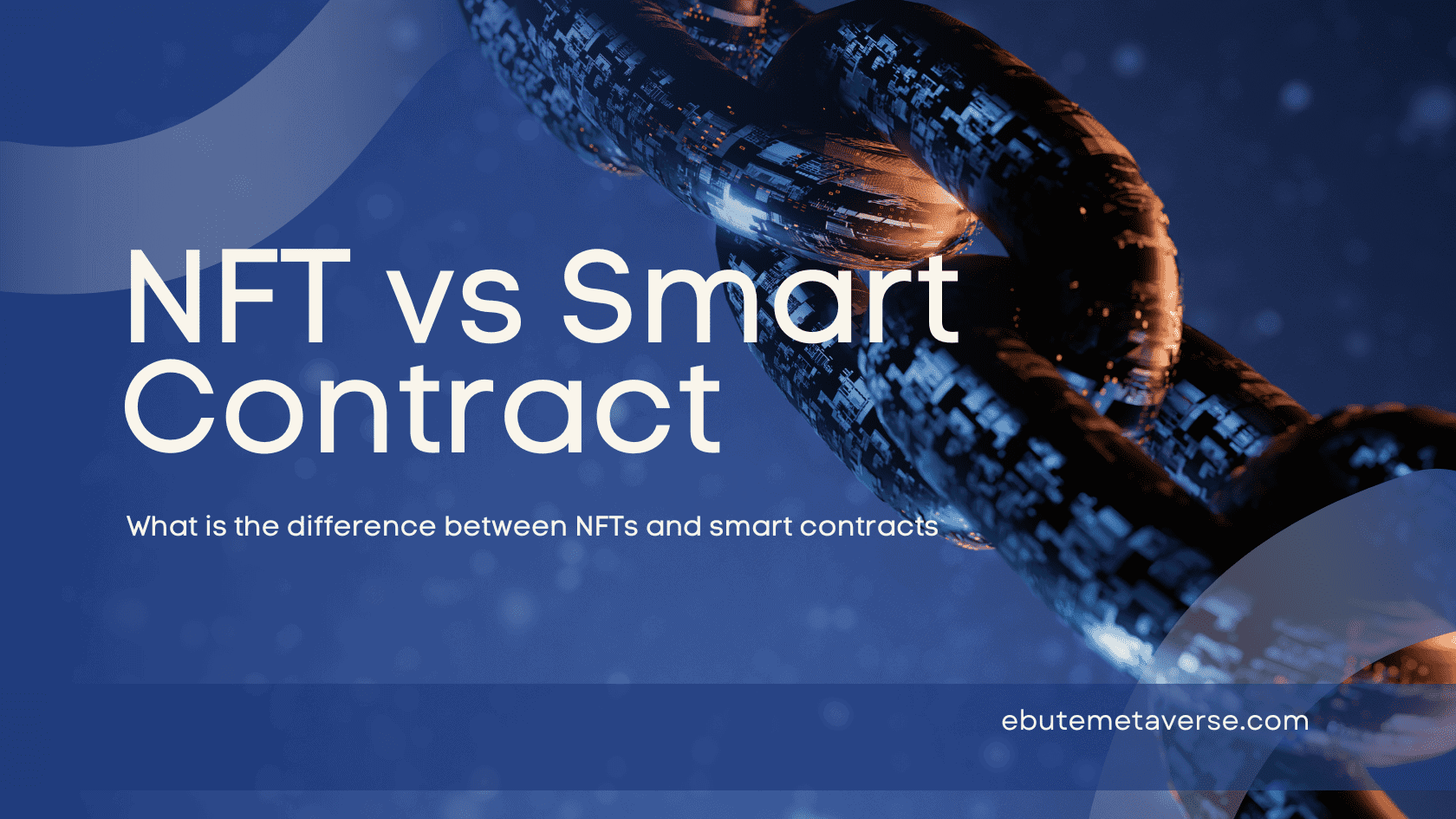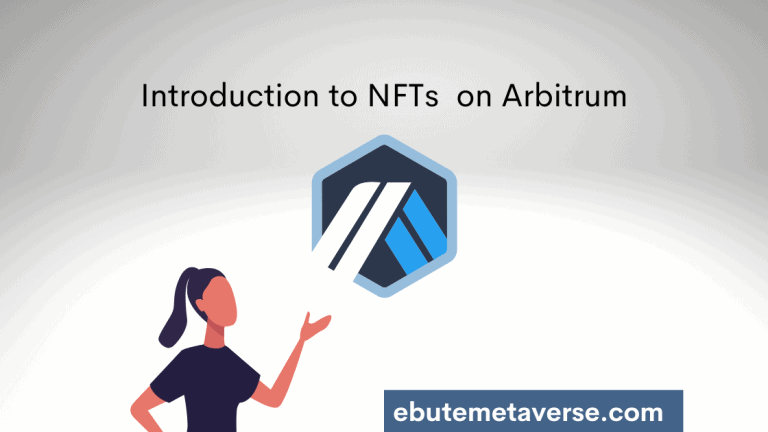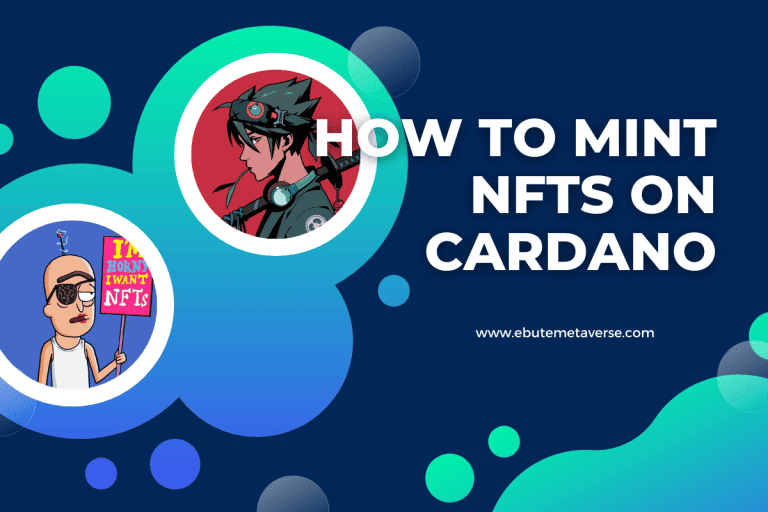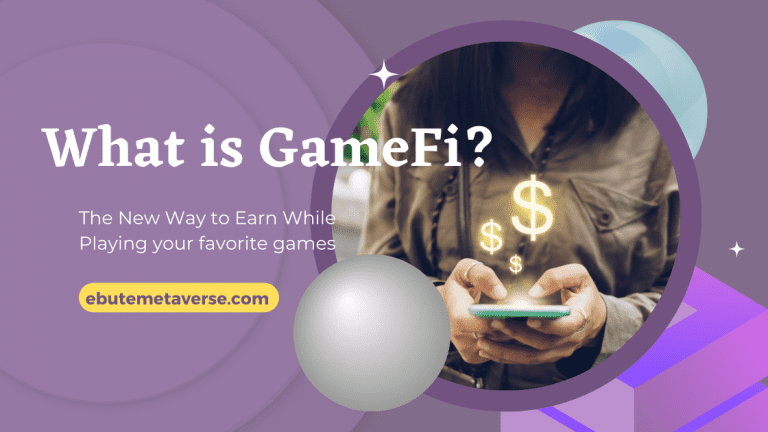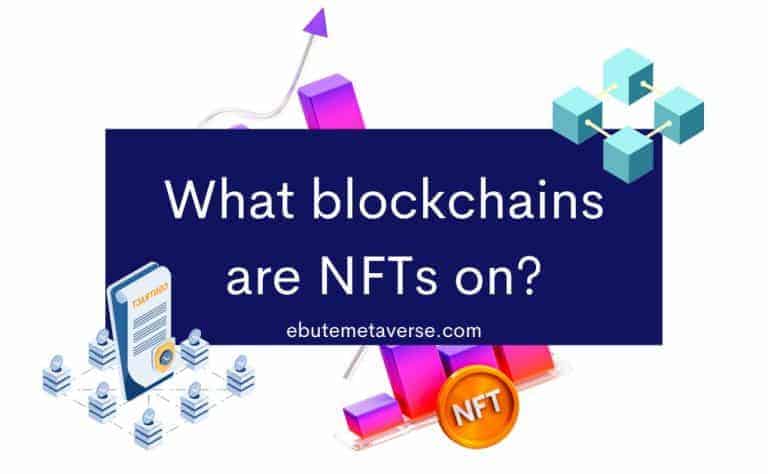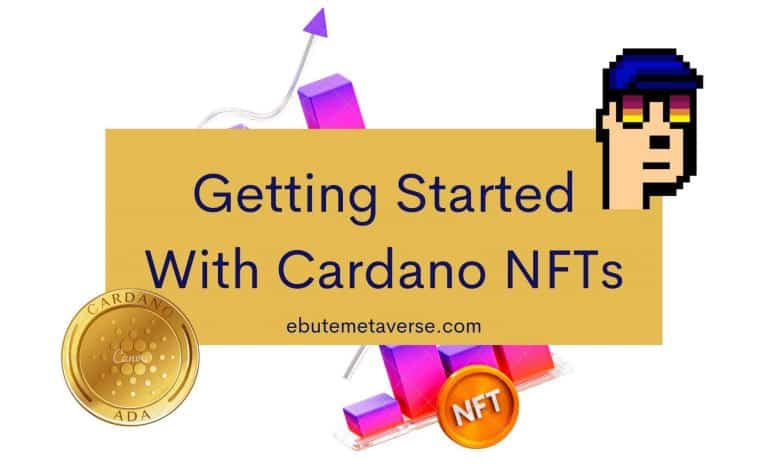NFT vs Smart Contract: the Difference Between NFT and Smart Contract
Knowing the difference between NFT and smart contracts can provide clarity when planning a project launch or discussing blockchain terms. These terms are usually used interchangeably in the NFT community. However, they perform different functions.
Non-fungible tokens are unique codes on the blockchain used to identify digital assets. Smart contracts, on the other hand, are like vehicles that ensure things work correctly on the blockchain without third-party interference.
So, if NFT differs from smart contracts, why are they used interchangeably? Plus, do you need a smart contract for an NFT collection?
I’ve broken down the difference between NFT and smart contracts to help you understand both concepts.
What Is the Difference Between NFT and Smart Contract?
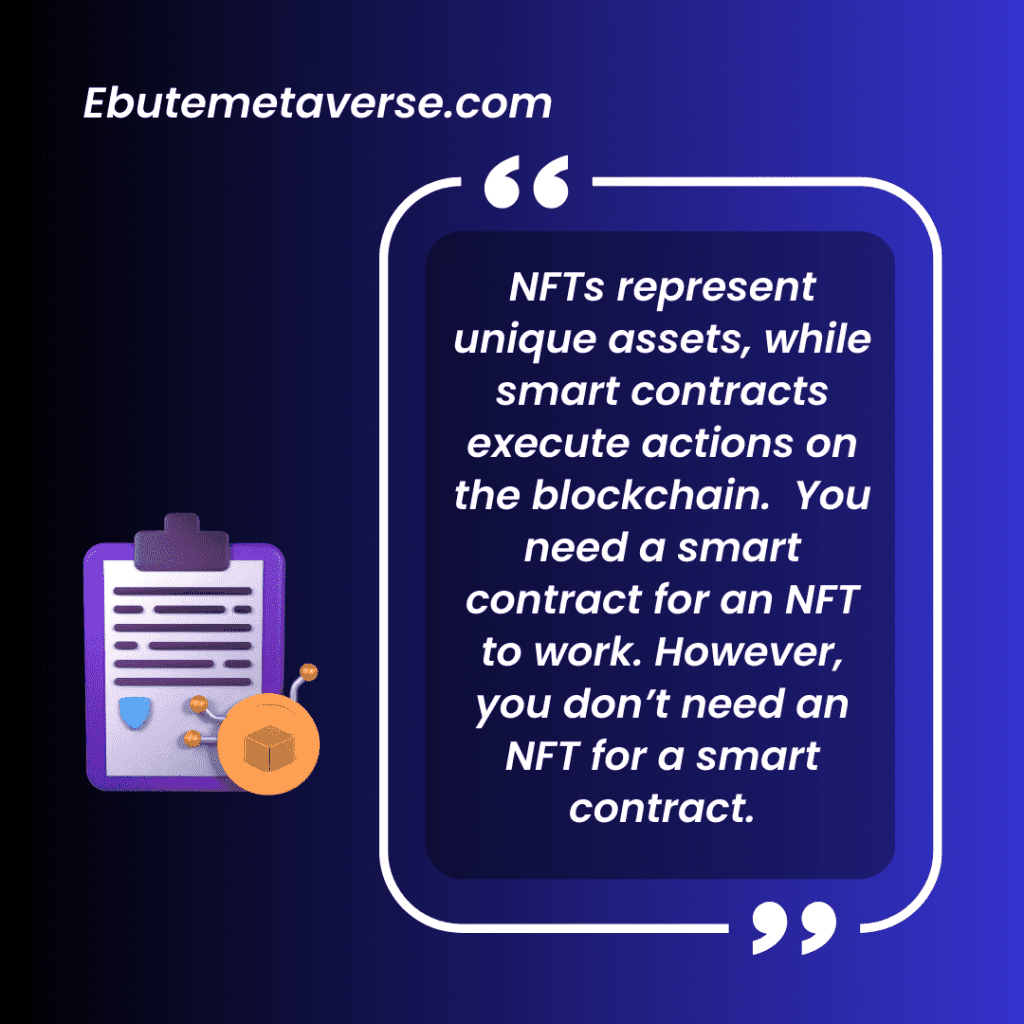
NFTs and smart contracts are both based on blockchain technology. However, NFTs are a specific kind of smart contract.
NFTs help identify unique assets on the blockchain and rely on smart contracts to define ownership and transaction rules. This makes NFTs useful for artists and collectors. Essentially, NFTs are a special type of smart contract designed for creating and trading one-of-a-kind digital assets.
NFT vs Smart Contract: Key Comparison
The main difference between NFT and smart contracts is that NFTs represent unique assets, while smart contracts execute actions on the blockchain. You need a smart contract for an NFT to work. However, you don’t need an NFT for a smart contract.
The table below shows a more detailed breakdown of the difference between NFT and smart contracts:
| Criteria | NFTs | Smart Contracts |
| Definition | Unique digital assets that represent ownership | Self-executing computer programs that automate the execution of contractual agreements |
| Function | represent ownership of a specific item | Automate tasks and execute contractual agreements. |
| Token Type | Non-fungible, one-of-a-kind tokens | Fungible or non-fungible tokens |
| Use Cases | Art, collectibles, video game items, and virtual real estate | Financial agreements, supply chain management, and decentralized applications |
| Programmable Capabilities | Limited programmability for specific use cases | highly programmable with complex logic |
| Security | high level of security due to blockchain technology | secure and transparent due to blockchain technology |
| Interoperability | Limited interoperability between different blockchains | highly interoperable between different blockchains |
| Market Value | highly valued for their uniqueness and scarcity | valued based on the execution of the contractual agreement |
What Is Meant by Smart Contract?
Smart contracts are like digital agreements that work automatically. They are written on a blockchain using “if/when…then…” statements.
When certain conditions are met, a network of computers carries out the instructions written in the contract. These instructions can include releasing money or changing an NFT’s metadata.
The entire process happens automatically, and you don’t need an intermediary. Once you deploy a smart contract, you cannot change its execution. Our article on smart contracts explains it better.
What Is an NFT?
If you’re not new to the community, you already know what non-fungible tokens are. But if you’re just getting started, here’s what you need to know about NFTs;
NFTs are tokens on the blockchain that can represent unique assets. No two NFTs are the same. For instance, 1 bitcoin in the US is the same as 1 bitcoin in India. However, an NFT I own will completely differ from your NFT—you can easily differentiate them thanks to their metadata.
An NFT usually comes with a link to the underlying asset, which is usually stored in an IPFS system. What truly makes the NF unique is the token ID and metadata attached to it. These are what owners use to verify their rights to the NFT.
Can you have an NFT without a smart contract?
No, you can’t have an NFT without a smart contract. The smart contract is the code that manages the NFTs metadata and how it functions. You can use the smart contract to mint an NFT, assign ownership, or view its history.
The smart contract is also responsible for facilitating the transfer of ownership of the NFT. When someone buys an NFT, the smart contract updates the ownership rights on the blockchain. This ensures that the ownership of the NFT is verifiable, transparent, secure, and undisputed.
Do I need a smart contract for my NFT collection?
An NFT can’t work without a smart contract. In fact, it’s the foundation of any non-fungible token. So to create an NFT collection, you need a smart contract to handle the entire on-chain task. These tasks include;
- minting the collection on the blockchain
- collecting royalties from secondary sales
- verifying ownership
- providing access to the underlying asset
- Updating the metadata (after purchase or during art reveals)
How are smart contracts used in NFTs?
Smart contracts allow you to mint an NFT and assign ownership. It also reassigns ownership once the NFT is sold and oversees the asset’s transfer to a new owner after purchase.
Since smart contracts manage the underlying asset, it stores the creator’s details in the metadata. This ensures they get proper recognition and compensation for their work. Overall, smart contracts are like the digital “brains” behind NFTs, allowing them to be more dynamic.
What are the benefits of smart contracts in NFTs?
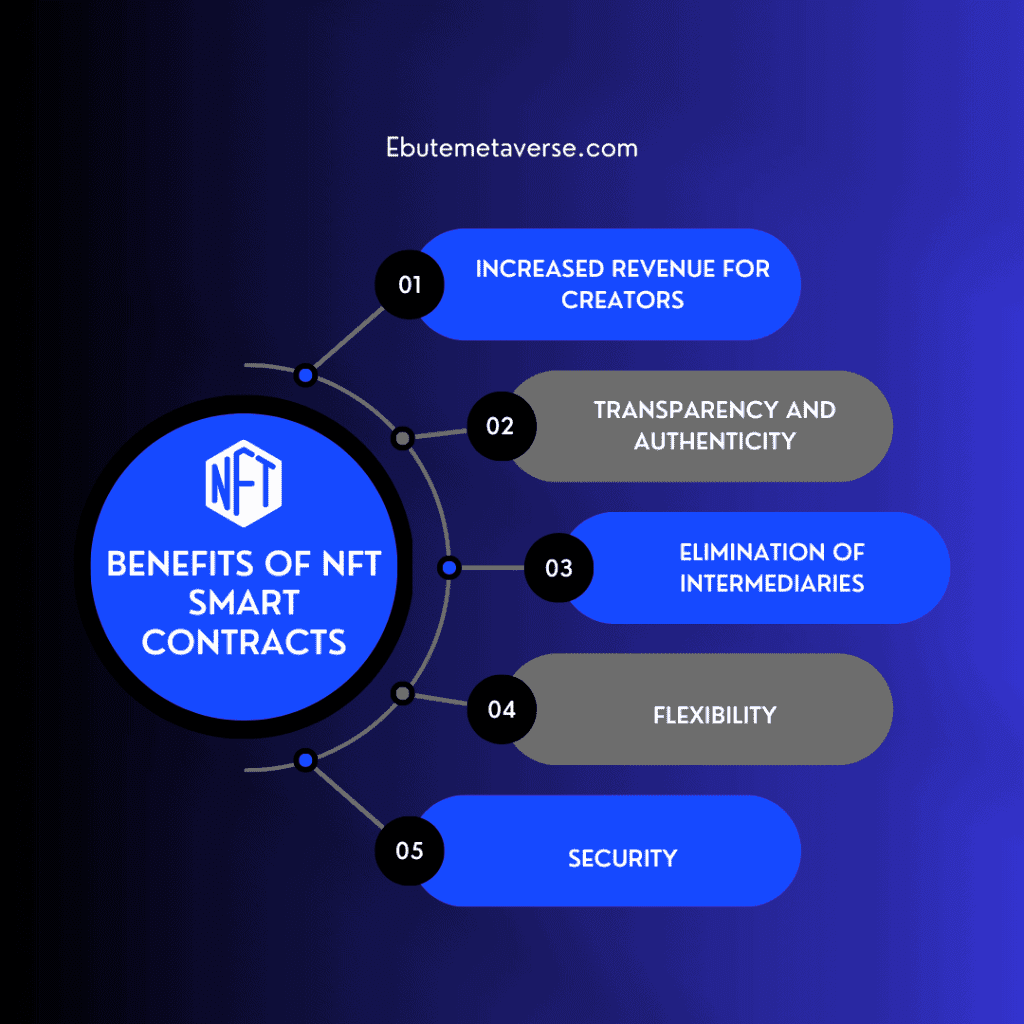
NFT smart contracts provide numerous benefits to creators and collectors alike.
Some of the benefits are;
1. Increased Revenue For Creators
Smart contracts can be programmed to automatically send a percentage of an NFT’s secondary sale to the original creator. This can be especially valuable for artists and creators who want to monetize their work in new ways.
2. Transparency And Authenticity
NFT smart contracts provide a clear and transparent record of ownership and provenance. It makes it easy to verify the authenticity of a digital asset.
This level of transparency is valuable for artists and collectors who want to ensure that their work is properly attributed and compensated.
3. Elimination of Intermediaries
NFT smart contracts allow creators and collectors to interact directly with each other, reducing the need for intermediaries such as galleries or auction houses. This can lead to lower transaction fees and a more direct relationship between artists and their fans.
4. Flexibility
Since NFTs can be easily transferred between parties, ownership can be shared among multiple parties or changed more frequently. This allows for more dynamic and flexible ownership arrangements. This can help to ensure that digital assets are being used to their fullest potential and can also provide new opportunities for collaboration.
5. Security
NFT smart contracts are stored on a blockchain, providing high security. This makes it difficult for hackers or malicious actors to tamper with the asset or the contract governing its transfer. This can provide peace of mind for creators and collectors and help reduce the risk of fraud or other types of theft.
How do I create a smart contract with NFT?
You must understand Solidity and OpenZeppelin or Remix IDE to create a smart contract with NFT. Solidity is the official coding language of the Ethereum blockchain, while OpenZeppelin and Remix IDE are applications for building and deploying smart contracts.
If you’re an experienced coder, creating a smart contract for NFT shouldn’t be a problem. You can watch the video below to start creating your NFT smart contract.
If you aren’t familiar with coding, however, creating your own smart contract with NFT can be confusing. Thankfully, no-code tools can do the entire smart contract process for you. You’ll find them on popular NFT generators like Bueno Art and others. NFT marketplaces also feature inbuilt smart contracts, allowing you to launch your NFT without coding experience.
Note that these options can be limiting in terms of how dynamic your smart contract can be. Your best option is to get someone on platforms like Fiverr to help you with your smart contract. These freelancers usually charge from $70 upward. The higher the pay, the better quality you get.
NFT vs Smart Contracts: Our Thoughts
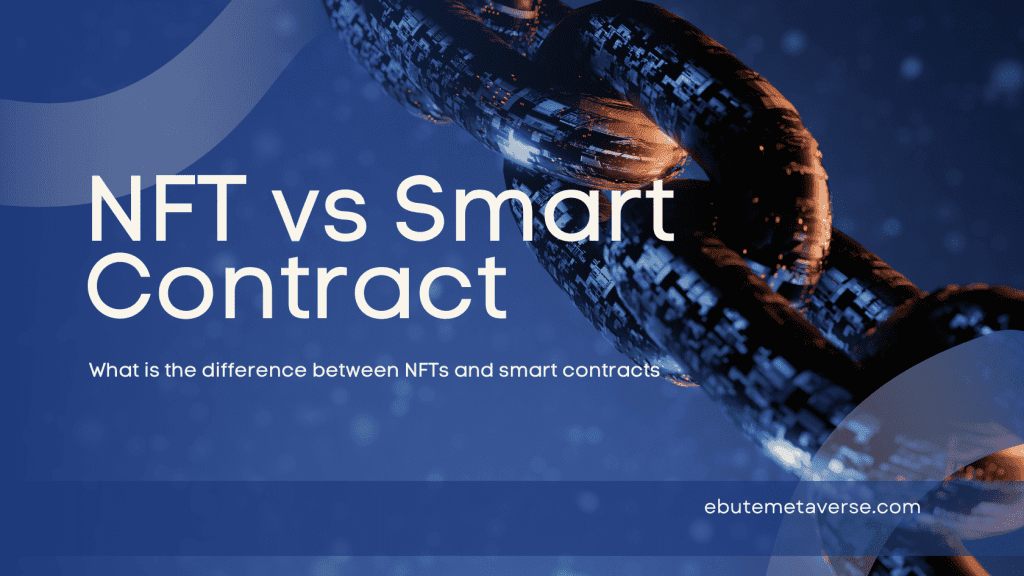
Smart contracts are important for non-fungible tokens to work. They control how an NFT interacts with the blockchain and what it represents. Smart contracts also assign and reassign ownership when an NFT changes wallets.
However, smart contracts don’t need NFTs; they have other use cases outside the non-fungible token market. Knowing the difference between NFT and smart contracts is essential for your success as a creator and collector.

